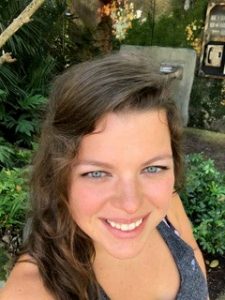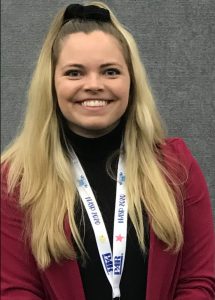Heartland Head Start is a nonprofit, charitable organization based in Bloomington, Illinois. It provides comprehensive early childhood and social services for low-income children, up to age 5 as well as pregnant women and their families. This is accomplished through Head Start classrooms (ages 3-5) and Early Head Start classrooms (6 weeks – 3 years) offered in Bloomington, Normal, and Pontiac. Eligible families must meet income eligibility guidelines, be homeless, or part of the foster system. The services offered are free and include education, physical health, mental health, nutrition, socialization, transportation, family literacy, parent engagement, and services that meet the needs of special populations (children with disabilities, homeless families, children in foster care, etc.).
“Head Start and Early Head Start programs support the social emotional health of children, families, and staff everyday. The mental health of children and the adults that care for them is essential for school readiness,” said Heartland Head Start Special Services Manager/Mentor Coach Teri Meismer.
Through a partnership with Illinois State University, four advanced graduate student mental health consultants (Megan Donnelly, Heather Calkins, Kara Cicciarelli, and Garett Hawkinson) and two school psychology faculty supervisors (Drs. Mark Swerdlik and Adena Meyers) work with Head Start. The consultants spend time in the classrooms and meet with classroom teams and parent child educators (home visitors). Consultation is a collaborative process in which a trained consultant assists one or more consultees (teachers, administrators, parents) to make decisions and carry out plans related to mental health issues that are in the best interest of the children and families enrolled in Head Start.
The defining characteristics of early childhood mental health consultation are collaborative relationships, building the capacity of the child’s caregivers, and the indirect nature of intervention services. Early childhood mental health consultation is a service provided at an “arm’s length” from the child; supporting and empowering others to “become therapeutic” and deliver care and interventions in the context of the child’s and caregiver’s everyday activities.
“As a mental health consultant I get to spend time in classrooms observing, interacting, and gathering data that allows me to collaborate with the classroom teacher, supervisors, and other mental health consultants in order to provide the best possible environment for children. The classroom teachers and I communicate frequently, each sharing our specific knowledge and making decisions together. The best part of the job is that all involved share the same goal of wanting to ensure all children succeed,” said Cicciarelli.
Donnelly had this to say. “As a mental health consultant, I am very lucky to be able to collaborate with the incredible teaching teams at Head Start. My responsibilities as a consultant revolve around using data collected through observations and consultation with teachers, supervisors, and other mental health consultants to figure out in what ways we can best support kiddos in the classroom. I am also very lucky to be able to build relationships with the kiddos during my classroom visits! What has been most meaningful to me has been the relationships I have been able to build with teaching teams, families, and students–Head Start truly feels like a comprehensive community determined to ensure the success of each and every child.”
“I think a lot of times, staff, and parents alike are wary of terms such as “mental health,” and hearing these words in regards to a child as young as 3 years old can be quite daunting. I love being able to work with teachers and parents to process their reactions and emotions to the situation at hand and help them feel capable of changing their own behaviors to best support the child. I think having a positive experience addressing their child’s social, emotional, and behavioral needs in preschool paves a pathway for parents and/or guardians to remain open to future mental health services for themselves as well as their child. It also provides a corrective experience for some teachers and parents who have had previous negative experiences with mental health services. I have been a mental health consultant since August of 2017. I absolutely love what I do,” remarked Calkins.
Meismer had many positive things to say when asked about the ISU mental health consultants. “Our mental health consultants are an integral and valuable member of the classroom team. In addition to classroom and home support, they also provide training for parent meetings, and for staff. They’re a wealth of information and consistently share resources and, most recently, have been creatively meeting with staff as well as with individual families. They are critical within the workings of our program. They’re currently participating in remote learning for our families and have been sharing guidance for staff as well.”
This partnership has proved to be a win-win for the University as well as Head Start. School Psychology students have been able to gain experience with preschoolers from diverse backgrounds, receive graduate assistantship funding, experience working in mental health consultation, and provide a public service to the community. Heartland Head Start has been better able to provide mandated mental health services, systems-level consultation as requested, and additional classroom support. “I absolutely love our partnership with ISU and our mental health consultants,” said Meismer.




